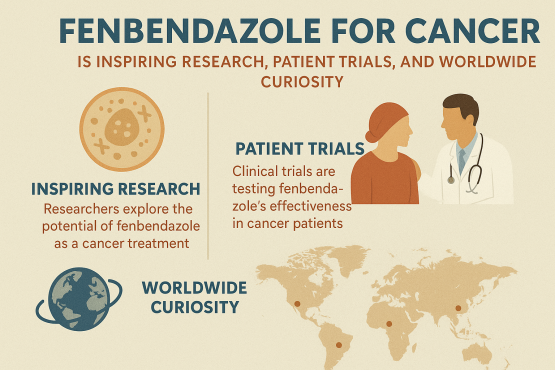- Your cart is empty
- Continue Shopping
- Home /
- Page
Fenbendazole For Cancer
Fenbendazole Tablets For Humans
$80.00 – $280.00Fenbendazole 222Mg
$70.00 – $260.00Fenbendazole 444Mg
$75.00 – $270.00Fenbendazole 150Mg
$68.00 – $250.00Mebendazole 100mg (Mebex)
$35.00 – $120.00Albendazole 400 mg USA, UK, AUS
$80.00 – $2,550.00Fenbendazole for Cancer is Inspiring Research, Patient Trials, and Worldwide Curiosity

Introduction – Why Fenbendazole for Cancer is Gaining Attention
The idea of Fenbendazole for cancer has taken the medical and patient community by surprise. Social media discussions, patient testimonials, and early laboratory studies have all fueled worldwide curiosity.
What is Fenbendazole?
Fenbendazole is an anthelmintic drug from the benzimidazole family, widely used in veterinary medicine to treat parasitic infections. Its mechanism involves disrupting microtubules inside parasites. Interestingly, cancer cells also depend on microtubules, which is why researchers began testing fenbendazole against tumors.
- Drug class: Anthelmintic
- Traditional use: Deworming in animals
- New interest: Potential off-label use in human cancer treatment
Why Patients Are Talking About Fenbendazole for Cancer
Several reasons explain the growing attention:
- Affordability compared to chemotherapy and immunotherapy
- Viral patient stories, such as Joe Tippens’ stage 4 remission claim
- Lower side effect perception
- Interest in alternative therapies
How Fenbendazole Might Work Against Cancer Cells
Microtubule Disruption
Fenbendazole blocks microtubule formation, making it harder for cancer cells to divide.
Apoptosis (Cell Death)
Some studies suggest it may trigger programmed cancer cell death while sparing healthy cells.
Starving Tumors
Fenbendazole may interfere with glucose metabolism, potentially starving cancer cells.
Comparing Fenbendazole with Traditional Cancer Therapies
Chemotherapy
- Kills rapidly dividing cells but causes severe side effects
- Very costly
Radiation
- Effective but damages nearby healthy tissue
Immunotherapy
- Promising but expensive and not widely accessible
Fenbendazole’s Place
- Affordable, widely available
- Lacks large-scale clinical evidence
Current Research and Trials on Fenbendazole for Cancer
- Lab studies: Anti-cancer effects in lung, colon, brain cancers
- Animal studies: Tumor suppression in mice
- Case reports: Anecdotal patient improvements
- Clinical trials: Early stage, mostly exploring combination therapies
Risks and Limitations
- Limited human evidence
- Potential liver toxicity and drug interactions
- Dangers of self-medication
Global Curiosity and Controversy
Worldwide interest reflects the demand for affordable cancer therapies. Debate exists about why Big Pharma isn’t investing, possibly due to fenbendazole being cheap and non-patentable.
Conclusion – Hope with Caution
The story of fenbendazole for cancer demonstrates how unexpected discoveries can spark hope globally. While patient stories and early studies inspire optimism, scientific validation and medical guidance remain essential before adopting fenbendazole as a therapy.
FAQs About Fenbendazole for Cancer
Q1: What makes fenbendazole interesting for cancer research?
Fenbendazole is attracting attention because early studies show it may affect cancer cells in unique ways, offering potential for new treatment approaches.
Q2: Can fenbendazole support cancer treatment?
Yes, research suggests fenbendazole might complement existing therapies by targeting cancer cells through different mechanisms.
Q3: Are there success stories of fenbendazole use?
Several patients have reported improved quality of life and positive outcomes when incorporating fenbendazole alongside conventional treatments.
Q4: Is fenbendazole widely available?
Yes, fenbendazole is an affordable and accessible drug, making it easy for patients interested in alternative cancer research to explore.
Q5: Does fenbendazole have potential in ongoing research?
Absolutely! Scientists worldwide are studying fenbendazole for its promising anti-cancer properties, and early lab and animal studies show encouraging results.
Q6: Can fenbendazole inspire new treatment options?
Yes, its unique mechanism of action has opened doors for innovative approaches in cancer therapy research.
Q7: Is fenbendazole gaining attention globally?
Yes, patient communities, researchers, and clinicians worldwide are increasingly interested in exploring its potential in cancer care.






